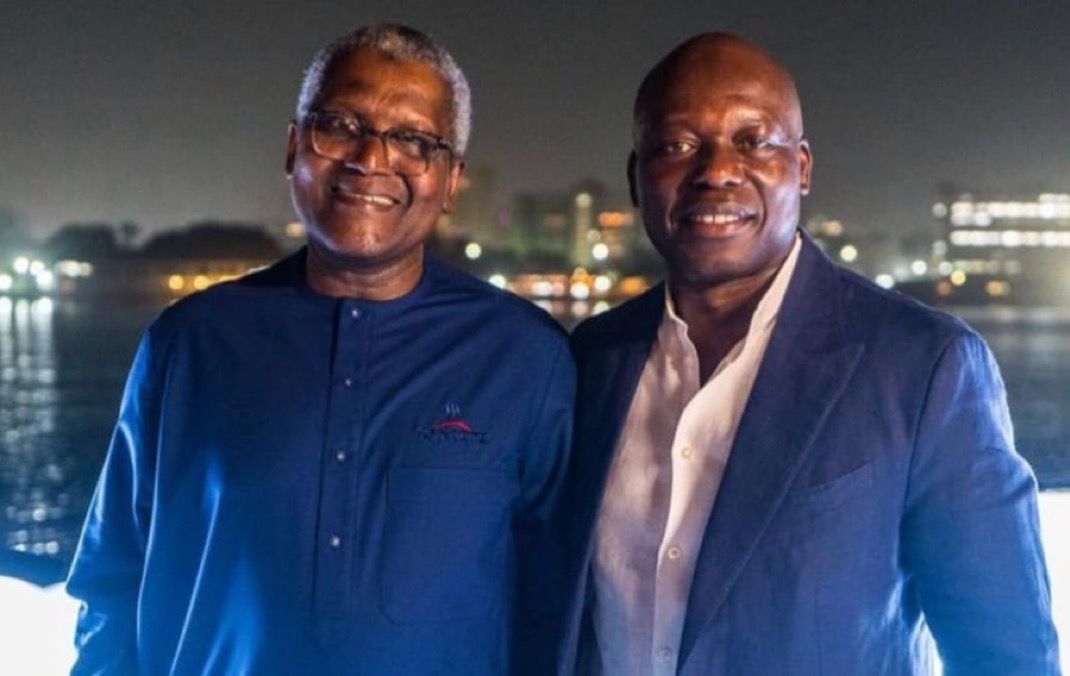
Dangote’s Refinery Expansion Plan Puts Nigeria on Global Energy Map — Wale Tinubu

The Chief Executive Officer of Oando Plc, Wale Tinubu, has lauded the Dangote Refinery expansion plan, describing it as a monumental step that will not only reshape Nigeria’s energy landscape but also firmly establish the country on the global energy map. Tinubu, one of Nigeria’s most influential oil magnates, made this remark during a recent industry event where he hailed the Dangote Group’s ongoing efforts to broaden its refining capacity and deepen its footprint in both domestic and international markets.
According to Tinubu, the Dangote Refinery’s continued expansion signals a defining moment for Nigeria’s energy independence and a beacon of industrial transformation that the world cannot ignore. He noted that for the first time in Nigeria’s history, the country is not just building for self-sufficiency but aiming to become a net exporter of refined petroleum products. “This is beyond business,” Tinubu emphasized, “it is a national project that changes the narrative of Africa’s largest economy and positions it as a true player in global energy trade.”
Dangote Refinery, situated in the Lekki Free Trade Zone in Lagos, is already recognized as the largest single-train refinery in the world, with a current capacity of 650,000 barrels per day. However, recent reports confirm that the company is now exploring expansion opportunities that could push production beyond this capacity, focusing on the export of refined products across Africa, Europe, and parts of Asia. Wale Tinubu described this as a visionary step that would recalibrate the balance of energy flows, reducing Africa’s dependence on imported fuel and boosting intra-continental trade under the African Continental Free Trade Area (AfCFTA).
In Tinubu’s words, “What Dangote is doing is revolutionary. For decades, we’ve been exporting crude and importing refined products, losing value at every stage. With this expansion, we are capturing that lost value chain, creating jobs, stabilizing our currency, and transforming our economy from a raw material exporter to a finished goods producer.” He further stated that the refinery’s expansion would attract billions of dollars in foreign exchange inflows as Nigeria becomes a supplier to neighboring countries that have long depended on imports from Europe.
Tinubu also highlighted the catalytic effect the refinery would have on other sectors of the economy, including petrochemicals, manufacturing, and infrastructure. He explained that as more refined products become available locally, industries that rely heavily on fuel, lubricants, and chemical by-products would experience lower operating costs, improved efficiency, and a renewed capacity for growth. “It’s a chain reaction,” he said, “the moment you fix energy, you unlock the economy. Energy is the backbone of industrialization, and Dangote’s move is the spine Nigeria needs right now.”
The Oando boss also commended the visionary leadership of Aliko Dangote, whose persistence and commitment, he said, have made what once seemed impossible a reality. He recalled the skepticism that surrounded the project in its early stages and noted how Dangote’s perseverance through years of regulatory hurdles, logistical challenges, and massive capital investment has inspired renewed confidence in Nigeria’s industrial potential. “This refinery is proof that Nigeria can do big things and do them right,” Tinubu said. “It’s not just a refinery; it’s a statement of intent.”
Observers note that the timing of the expansion couldn’t be more strategic. With global oil markets shifting toward cleaner fuels and regional self-sufficiency, Africa’s largest refinery positioning itself for export is seen as both a bold and pragmatic move. Analysts suggest that the refinery’s ability to supply high-quality Euro V standard fuels would open access to international markets, especially as European refiners face closures due to tightening environmental regulations. Nigeria, once plagued by fuel scarcity and import dependency, is now emerging as a credible supplier.
Tinubu further emphasized that the refinery’s success would have far-reaching implications for Nigeria’s foreign reserves, balance of trade, and currency stability. “Every dollar we save from importing fuel is a dollar we can invest in healthcare, education, and infrastructure,” he stated. “This is what true economic diversification looks like. It’s not just about having different sectors, it’s about adding value and exporting that value.”
He also noted that the expansion aligns perfectly with Nigeria’s energy transition agenda, which seeks to balance fossil fuel production with renewable energy investments. According to him, “You cannot transition from a position of weakness. First, you must secure your energy base. What Dangote is doing provides that foundation. It gives us the confidence and capital to invest in renewables. It’s a holistic national strategy.”
Beyond the numbers and policies, Tinubu spoke of the refinery’s social and symbolic impact, calling it “a new pride for Africa.” He described it as a rallying point for young engineers, technicians, and entrepreneurs who now have a model of industrial excellence to aspire to within their continent. “For too long, we’ve looked to Europe and Asia for examples of industrial might,” he said. “Now, they will look to Lagos. That’s a paradigm shift.”
Industry watchers agree that the synergy between Dangote Refinery and established players like Oando could redefine Nigeria’s energy ecosystem. There are already discussions about collaborations in logistics, pipeline infrastructure, and gas distribution to ensure smooth supply chains from refinery to market. Tinubu suggested that such partnerships are essential to sustain the momentum, stressing that “no single company can transform a sector alone. We must build an ecosystem that supports production, distribution, and innovation.”
He also hinted at the broader geopolitical importance of the project, noting that energy self-reliance could enhance Nigeria’s influence in regional and international negotiations. “When you control your energy, you control your destiny,” he remarked. “This refinery gives us leverage, not just in trade, but in diplomacy. It changes how Nigeria is perceived in the global economic conversation.”
As the world watches, Dangote’s expansion plans are attracting both excitement and scrutiny. International investors are keen to see how Nigeria manages this new industrial strength, while local communities anticipate the ripple effects in employment and infrastructure development. Tinubu assured that the benefits will not be confined to a few, emphasizing the inclusive economic impact that large-scale projects like this can deliver. “We are not just refining crude; we are refining hope,” he concluded.
With Wale Tinubu’s endorsement and Dangote’s relentless drive, Nigeria stands at the threshold of an energy revolution that could rewrite its economic story. From fuel queues and foreign dependency to export leadership and industrial pride, the journey symbolizes the country’s resilience and ambition. The refinery’s expansion is more than a business upgrade—it’s a signal that Nigeria is ready to claim its place as a powerhouse on the global energy map. And as Tinubu aptly put it, “This is Nigeria’s time to shine, not as a buyer of the world’s products,
but as a maker of them.”


